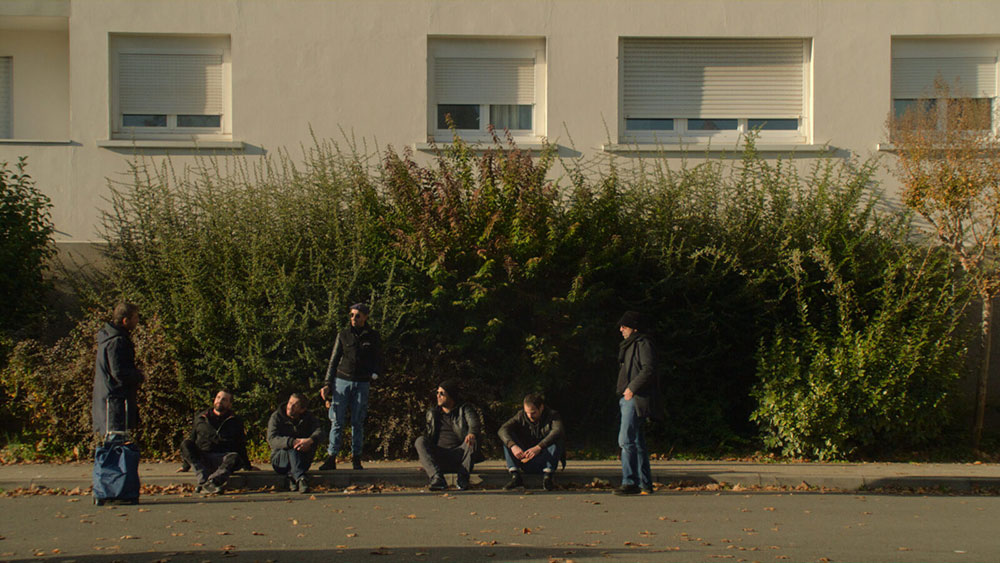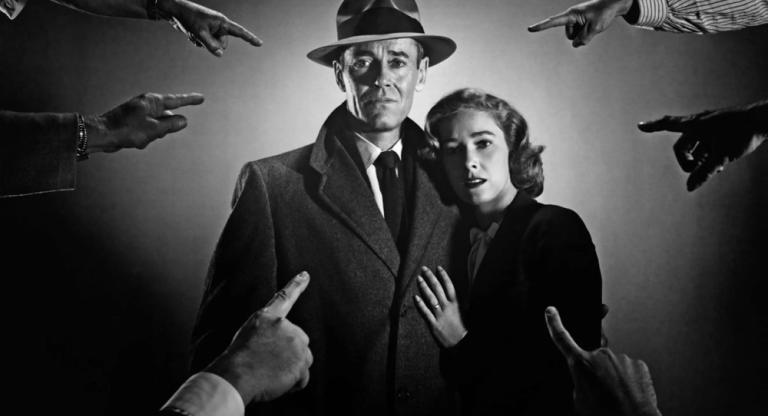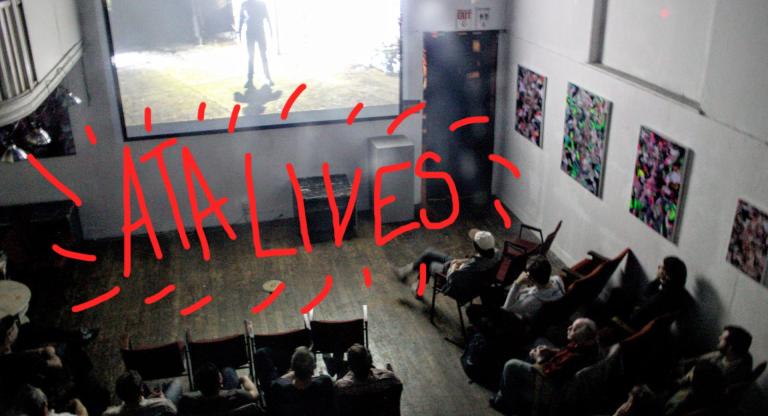I can’t tell you about the most exhilarating moment in Rabah Ameur-Zaïmeche’s The Temple Woods Gang (2024) because it would rob you of the thrill of being taken unaware. It’s the most unexpected development in a film full of surprises, none of which are plot twists. The film’s skeletal narrative is as elementary as a Jean-Pierre Melville plot—a heist, its disastrous consequences, and the execution of revenge—but calling The Temple Woods Gang a heist film would be like calling Mrs. Dalloway chick-lit. The decisive tension at the heart of Ameur-Zaïmeche’s masterful eighth feature is between inexorable structures like Greek tragedy or 21st-century capitalism and the opacity Ameur-Zaïmeche allows his characters, filming them in an unhurried manner that suggests the camera’s path is as important as where it lands. Like all of this great French-Algerian director’s films, The Temple Woods Gang rages at the conditions of our oppression, yet here the rage is matched with a hushed tone I’m tempted to call wonder—wonder at the irreducible complexity of human beings in the all too legible framework of their socioeconomic stations.
What I can tell you about is a scene where the six members of the titular gang celebrate a ballsy heist at a Lebanese food truck in a working class banlieue not unlike the one where Ameur-Zaïmeche came of age and made his first feature Wesh Wesh, What’s Happening? (2001). They joke about who will pick up the tab for their modest lunch now that it doesn’t matter who pays. One guy fantasizes about taking a honeymoon in Brazil, another about replacing his missing limb with a top-of-the-line prosthetic hand. Nowhere is the class consciousness at the core of Ameur-Zaïmeche’s essential body of work more poignant than in the mix of childlike glee and hardheaded practicality with which these suddenly rich men dream of their new lives. What they never talk about is leaving the neighborhood. By every standard of narrative efficiency, this parking lot lunch is a nothing scene, yet it typifies the emotional resonance of a defiantly serene film. Ameur-Zaïmeche stages the friendship between the men in a way that dispenses with tough guy showboating and reinforces that these criminals are innocent. When the gangsters have finished their kebabs, they fold their folding chairs and bring them back to the truck.
In the neighborhood, people look out for each other, but the armature of capitalism is inescapable. One of the most dizzying connections made by the film’s lingering pans comes when we follow a race horse to its master and realize that the horses the gangsters bet on at the OTB belong to their remote antagonist the prince, an imperial villain who barely needs to speak to set the wheels of murder in motion. It’s no coincidence that the antagonist in The Temple Woods Gang is an actual prince. Just as it’s no coincidence that while Ameur-Zaïmeche’s film is about justice, it differs from the award-grabbing French films of our age in that there’s no courtroom in sight.
This brings us back to that part I couldn’t tell you about. Look for the scene in a nightclub in an unnamed city and see a badass archetype suddenly, and spectacularly, turn into a human being. In a single gesture, the archetype we all think we know sucks us into the abyss of his complexity. That the gesture is joyous—an indication both of sensuality and frailty—only makes The Temple Woods Gang deeper.
The Temple Woods Gang screens this evening, March 6, and on March 7, at Lincoln Center as part of Rendez-Vous with French Cinema.



